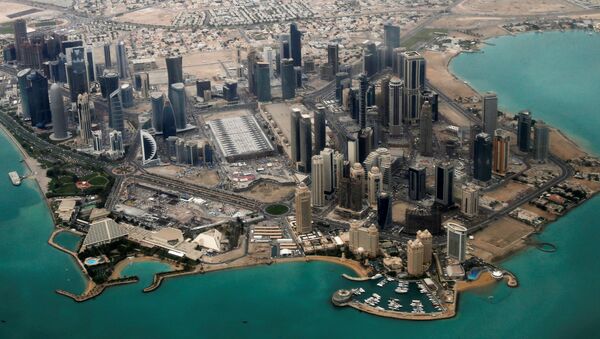Aksenenok pointed out that currently a "dangerous trend" is being witnessed in the Middle Eastern landscape.
"The danger of this trend is that major non-regional powers increasingly become hostages of the ambitious interests of regional players. In recent years, the role of regional powers in conflict has significantly increased," the expert said presenting his report for the Valdai Discussion Club.
"This was a result of the fact that United States’ allies and partners in the region managed to take advantage of the situation created by [US President Donald] Trump with his anti-Iranian statements in Riyadh," Aksenenok said.
The expert noted that in this situation Washington’s allies used American diplomacy for their own interests.
"This crisis doesn’t serve the interests of the US. It is a result of the fact that the US presidential administration is still undecided on what it policy in the Middle East should be. Currently, they’re learning by trial and error," Aksenenok said.
However, the expert drew attention to the possible negative consequences of Trump’s anti-Iranian stance.
"There is a danger. If Trump continues his anti-Iranian policy this may have very dangerous consequences and have a negative effect on the Syrian settlement, including the efforts by Russia, Turkey and Iran on military de-escalation," he pointed out.
On June 5, a number of countries, including Saudi Arabia, the United Arab Emirates, Bahrain and Egypt, cut diplomatic ties with Qatar and embargoed all sea, air and land traffic to the country, accusing Doha of supporting terrorist groups, particularly the Muslim Brotherhood terrorist movement, as well as of interfering in other countries' domestic affairs. Several other states in the region reduced diplomatic relations with the country.
The Qatari Foreign Ministry rejected the accusations of Doha's interference in other countries' domestic affairs and expressed regret over the decision of the Gulf States to cut off diplomatic ties with it.
Doha later said that the agency's website was hacked and there was no such statement from the Qatari leader. Nevertheless, Saudi Arabia, the UAE and Bahrain viewed the explanation as unconvincing. A number of other states, including Turkey and Kuwait, have been attempting to mediate the crisis.





